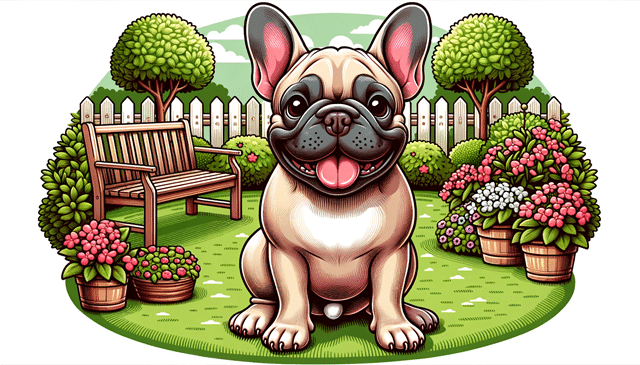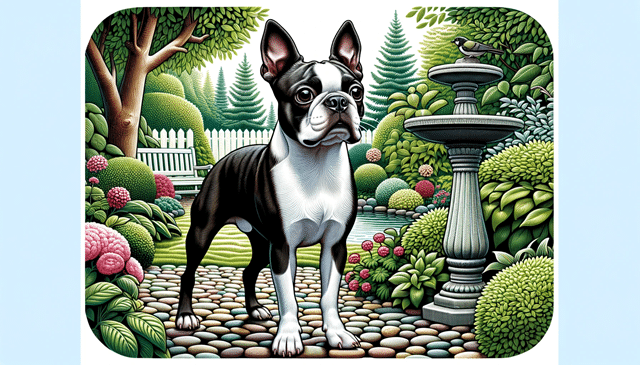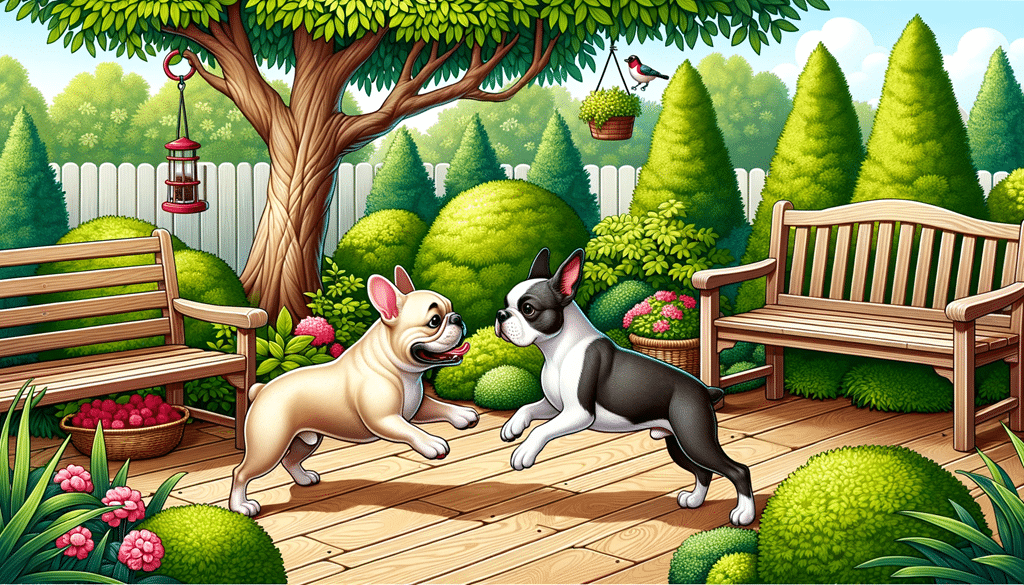Ever walked by a cute, snub-nosed dog and wondered, “Is that a French Bulldog or a Boston Terrier?” Well, you’re not alone! These breeds share a striking similarity that often leads to confusion. But don’t worry, we’re here to clear things up. In this article, you’ll explore their origins, compare their physical characteristics, temperament, and health, and even pick up some care and training tips. Let’s dive into the world of French Bulldogs versus Boston Terriers!
Origins of French Bulldogs
You might not know this, but French Bulldogs actually have their roots in 19th century England. It’s a fascinating story of breed development, as this beloved pet has a colorful ancestry story. Lace workers in Nottingham bred these small, miniature Bulldogs for companionship. Their unique, bat-like ears and squat, muscular bodies were distinct from other Bulldogs.
As industrialization loomed in England, many lace workers were displaced. They sought opportunities in France, taking their little Bulldogs with them. This is where the French influence on the breed began. The French fell in love with these dogs, cherishing them for their calm demeanor and distinctive appearance. They began to selectively breed them, promoting the features they loved.
These dogs soon became a staple in French society, appearing in cafes, on the boulevards, and even in the artworks of Degas and Toulouse-Lautrec. As their popularity grew, their ancestral lineage began to shift. They were no longer seen as English Bulldogs, but rather, were recognized as a breed of their own – the French Bulldog.
With the French influence, the breed developed into what we know today. The French Bulldog has a compact body structure, a snub-nose, and its signature bat-like ears. No longer a miniature version of another breed, they’ve carved out a unique identity of their own.
History of Boston Terriers
Let’s dive into the history of Boston Terriers, a breed that’s just as fascinating and unique as their French Bulldog counterparts. This American breed, often referred to as the “American Gentleman,” first gained recognition in the late 19th century. They originated from a mix of English Bulldogs and English White Terriers, which are now extinct. The result of this blend is what we now know as Boston Terrier hybrids.
Boston Terrier popularity soared during the 20th century. They became the first breed from the United States to be recognized by the American Kennel Club (AKC) in 1893. Their playful nature, friendly disposition, and distinctive tuxedo-like markings have endeared them to the American public ever since.
Famous Boston Terriers have made their mark in various fields. For example, there’s Sergeant Stubby, the most decorated war dog of World War I, who saved his regiment from surprise mustard gas attacks. This breed has also starred in movies and advertisements, further cementing their place in popular culture.
Our history lesson won’t be complete without a neat overview. Here’s a markdown table for you:
| Year | Event |
|---|---|
| Late 19th Century | Boston Terriers originated from a mix of English Bulldogs and English White Terriers |
| 1893 | First U.S. breed recognized by the AKC |
| 20th Century | Boston Terrier popularity surged, and famous Boston Terriers emerged |
Physical Characteristics Comparison
While you may be drawn to the rich history of Boston Terriers, it’s also essential to consider their physical characteristics compared to French Bulldogs when deciding on the right breed for you.
Let’s start with the breed size. Boston Terriers typically weigh between 12-25 pounds and stand about 15-17 inches tall. On the other hand, French Bulldogs are slightly smaller, averaging between 16-28 pounds and standing only 11-12 inches tall. Both breeds are considered small dogs, but the French Bulldog is a bit sturdier and chunkier, whereas the Boston Terrier has a more compact, leaner build.
Moving on to coat differences, both breeds have short, smooth coats that shed moderately. However, the French Bulldog has a slightly thicker coat than the Boston Terrier. Boston Terriers are usually black and white, often described as ‘tuxedo’ due to their distinctive markings. French Bulldogs, however, come in a wider variety of colors including fawn, cream, and various shades of brindle.
Lastly, the facial structure of these breeds is where you’ll see the most apparent difference. Boston Terriers have a square, well-defined muzzle and large, round eyes that give them an alert, intelligent expression. In contrast, French Bulldogs display their trademark ‘bat ears’ and have a shorter, more rounded muzzle that contributes to their iconic squashed-face appearance.
Considering these physical characteristics will definitely make it easier to choose between a French Bulldog and a Boston Terrier. Remember, it’s not just about looks, but also about how well the breed’s size, coat, and facial structure fit with your lifestyle and preferences.

Temperament and Personality Traits
After examining their physical differences, it’s crucial to delve into the distinctive temperaments and personality traits of French Bulldogs and Boston Terriers, as these factors can significantly influence your final decision.
French Bulldogs, for instance, are known for their affectionate nature. They form strong bonds with their owners and are always eager to cuddle and show their love. This makes them ideal companions for individuals or families seeking a loving, loyal pet. Their socialization tendencies, however, are a bit limited compared to Boston Terriers. They can be somewhat standoffish with strangers and other dogs, therefore, socialization training at a young age is necessary.
When it comes to the playfulness level, Boston Terriers have French Bulldogs beat. These dogs are full of energy and love to play, making them a great choice for families with children or other pets. They are also more sociable than French Bulldogs, quickly warming up to strangers and other dogs. However, they may require more attention and exercise to keep them happy and healthy.
Both breeds are intelligent and can be trained easily, but their stubborn streaks can make training a bit of a challenge. It’s important to establish a routine and be consistent with your training to ensure they learn the rules of your home.
Health and Lifespan Differences
Now, you’ll want to consider the health and lifespan differences between the French Bulldog and the Boston Terrier. Both breeds have unique health concerns and lifespan expectations that you need to be aware of before deciding which is the right pet for you.
The French Bulldog has an average lifespan of 10 to 12 years, while the Boston Terrier typically lives between 13 to 15 years. This discrepancy is due to a variety of factors, including genetic diseases, the impact of exercise, and the influence of nutrition.
Consider the following:
- Genetic diseases:
- French Bulldogs are prone to health issues like hip dysplasia, brachycephalic syndrome, and a range of eye conditions.
- Boston Terriers, on the other hand, are predisposed to cataracts, deafness, and patellar luxation.
- Exercise impact:
- French Bulldogs require moderate exercise to prevent obesity, but due to their short snout, they can struggle with breathing problems during intense activities.
- Boston Terriers are much more active and require regular exercise, but overexertion can lead to overheating due to their brachycephalic nature.
- Nutrition influence:
- French Bulldogs have a tendency towards obesity, so a balanced diet is critical to their health.
- Boston Terriers also need a balanced diet, but they are less prone to weight issues and more to food allergies.
Understanding these health differences is essential to make an informed choice between these two lovable breeds. Always consult with a vet for personalized advice based on your potential pet’s specific needs.
Care Requirements and Training Tips
Given the unique health concerns of both French Bulldogs and Boston Terriers, it’s crucial that you understand their distinct care requirements and training tips.
When it comes to grooming techniques, both breeds have short, easy-to-care-for coats. However, they do shed, so regular brushing is recommended to minimize shedding and keep their skin healthy. French Bulldogs, in particular, have facial wrinkles that require special attention to avoid infection.
Feeding schedules for these breeds should be consistent and portion-controlled to prevent obesity, a common health issue for both. French Bulldogs are prone to flatulence, so a diet low in carbohydrates can help alleviate this problem. Boston Terriers, on the other hand, may require a diet tailored to their high-energy nature.
Exercise needs for these breeds differ slightly. French Bulldogs aren’t as active as Boston Terriers and can be prone to overheating due to their short snouts, so short, regular walks are best. Boston Terriers, however, are energetic and require more exercise. However, care should be taken in extreme temperatures due to their short coats.
Training these breeds requires patience and consistency. Both are intelligent but can be stubborn. Positive reinforcement techniques work best, along with early socialization. French Bulldogs, in particular, can be prone to separation anxiety, so crate training from a young age can be beneficial. Boston Terriers are often eager to please, making them slightly easier to train.

Frequently Asked Questions
What Are the Price Differences Between a French Bulldog and a Boston Terrier?
When considering the cost of a new pet, you should note that price differences can depend on factors like breeding considerations, health issues, and training differences. French Bulldogs typically cost more than Boston Terriers due to their breeding complexity and potential health issues. Training also plays a role, as Frenchies may require more effort to train. Always research and plan for these expenses when looking into getting a new furry friend.
Are There Any Specific Dietary Needs for Each Breed?
You’re asking about specific dietary needs for certain breeds. It’s crucial to note that food allergies prevalence differs among breeds. Both may benefit from dietary supplements, but the necessity varies. Breed specific nutrition is essential to consider. What works for one breed might not work for another. Always consult with your vet to ensure you’re providing the best possible diet for your furry friend, taking into consideration their breed, age, and overall health.
Which Breed Is More Popular in Urban or Suburban Environments?
When it comes to urban adaptability, it’s not a one-size-fits-all situation. You might find that a breed’s popularity hinges on factors like noise levels and exercise requirements. If you’re living in a concrete jungle, a quieter, lower-energy breed might be the apple of your eye. Conversely, in the suburbs, where there’s room to roam, a more active breed could be right up your alley. Remember, popularity isn’t everything. The best fit for you depends on your lifestyle.
Can Either Breed Be Safely Kept in a Household With Other Pets?
Sure, you can safely keep either breed in a household with other pets. Both breeds generally have friendly temperaments, but remember, training challenges may arise. It’s important to properly introduce them to your existing pets. Compatibility varies from pet to pet, so it’s not just about the breed. Socialization is key to ensure they get along well. So, yes, with the right approach and patience, you can certainly make it work.
What Are Some Famous Examples of Each Breed in Popular Culture?
You’ve probably seen celebrity pet choices featuring both breeds. Remember Stella, the French Bulldog in ‘Modern Family’? Or Frank, the Boston Terrier in ‘Men in Black’? They’re great examples of breed representation in movies. Plus, they’re often featured on pop culture merchandise, from T-shirts to coffee mugs. These breeds have definitely made their mark in popular culture, thanks to their unique looks and charming personalities.
Conclusion
In the end, it’s like comparing apples and oranges. Both French Bulldogs and Boston Terriers have unique charms and quirks that might steal your heart. Your choice depends on your lifestyle, home, and personal preferences. Either way, you’re signing up for a loyal companion with a side of mischief. So, whether you fall for the French Bulldog’s bat ears or the Boston Terrier’s tuxedo coat, you’re guaranteed a life filled with love, laughter, and a few unforgettable antics!

